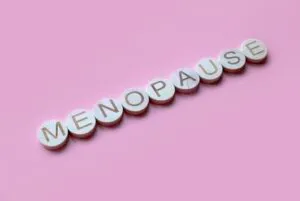 Dozens of vitamin supplement bottles line your local pharmacy’s shelves, and as you stand in front of them, overwhelmed by the options, you start to wonder if you need any of them at all. In fact, many people don’t need supplemental vitamins and minerals because a rounded diet offers sufficient nutritional benefits. Your body gets what it needs from the foods you eat as long as you’re eating what you should. However, you may need supplements if you don’t eat certain types of food or you have a medical condition that demands extra vitamins, such as pregnancy.
Dozens of vitamin supplement bottles line your local pharmacy’s shelves, and as you stand in front of them, overwhelmed by the options, you start to wonder if you need any of them at all. In fact, many people don’t need supplemental vitamins and minerals because a rounded diet offers sufficient nutritional benefits. Your body gets what it needs from the foods you eat as long as you’re eating what you should. However, you may need supplements if you don’t eat certain types of food or you have a medical condition that demands extra vitamins, such as pregnancy.
Start the Conversation
Before you start taking any supplements, talk to your doctor. You might not think that it matters since supplements are usually natural, but over-the-counter vitamins and minerals can interact with other elements of your diet, especially prescription drugs. Synthetic thyroid hormones, for example, should not be taken within four hours of calcium supplements because doing so affects absorption. If you take medication regularly, it’s always a good idea to talk to your primary care doctor or pharmacist about drug interactions when you start a new drug or supplement.
Follow the Right Regimen
Once you have the go-ahead from your doctor to start a supplement regimen, make sure you’re getting the right form of vitamins and minerals. Many prepared foods, such as cereals and bread, have been fortified with added vitamins and minerals today, making them a better option than the pill form. Here are a few vitamins that you might need to add to your diet if you aren’t getting enough through the foods you eat:
- Calcium – protects bones and fights against osteoporosis
- Iron – helps prevent anemia by improving red blood cell function
- Potassium – lowers risk of heart problems and counteracts high sodium
- Beta-carotene – promotes healthy vision, good skin and a robust immune system
You might have heard that taking extra vitamin C for a cold will help you fight the effects, but research has not found this to be true. Plus, vitamin C is found in a wide range of foods, so you probably don’t need to take the vitamin on its own as a supplement. As for multivitamins, research is conflicted over whether they offer any benefits. If you travel frequently or don’t eat enough fruits and vegetables, then you might consider a multivitamin just in case.
Supplement with Care
The bottom line is that you should get as many vitamins and minerals from natural sources as you can. The foods you eat, particularly fruits and vegetables, contain enough nutrients to promote healthy functioning, but other natural sources exist as well. For instance, you can get all of the recommended daily total for vitamin D from spending more time outside in the sun. All it takes is about 15 minutes daily. Vitamin D aids in calcium absorption, protects your bones and improves your mood. When you’re choosing supplements, consider your lifestyle habits and diet. You might need to take certain supplements if you have medical problems or a health condition, but getting vitamins and minerals from natural sources will typically be more effective.
Sources:
https://www.health.com/health/gallery/0,,20506267,00.html/view-all





